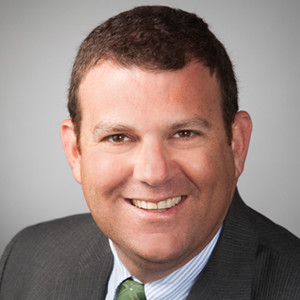As anyone who works in public relations will tell you, contacts are important. Essential. Clients, editors, reporters, company leaders – being able to reach the people you need to reach efficiently is how we make sure our clients are given primary – or at least equal – coverage.
But the mobile devices that now allow us to reach people – and monitor the news media – at all hours and from almost any location, have also changed the way we relate to those “contacts” we have (professional and otherwise) and especially how we keep track of their contact information.
It occurred to me the other day, when I went to call my brother in Michigan from our home phone, that I don’t know anyone’s phone number any more. Which is not to say I don’t have any one’s phone number. But if you asked me someone’s phone number that I perhaps ought to know, like my brother, I couldn’t tell you. I don’t think I’m alone in this predicament.
One of the reasons I don’t know anyone’s phone number any more is that most people now have more than one phone number. When I was a child, our family of five shared a single phone number (and only two phones in the house). But today my wife and I and our two sons have five phone numbers between us; the one we all share, the home phone, is the one we use the least.
But back when the “home phone” was the only way you could call someone from home, our family also had a list of frequently called numbers taped up next to the phone – my father’s work number, assorted neighbors and friends, and in those pre-911 days, numbers for the local police and fire departments. And if you didn’t know the phone number of someone you might need to call, you went to the phone book and looked it up – and most of the time, that worked fine.
But phone numbers are rarely written down any more. Instead, they are stored. In a cell phone. Today when you meet someone and exchange phone numbers, there’s a very good chance that the only time you will ever enter that person’s number on your keypad is when you are adding it to the “New Contact” entry you created on your cell phone. After that, if you want to call the person, you can just find his or her name in your contact list and push “Talk” – as long as you know the name, you no longer need to know the number.
And that is probably the biggest reason I don’t know anyone’s phone number any more. I don’t need to. Instead of memorizing important phone numbers or writing them on scraps of paper to keep in a wallet “just in case,” a mobile phone allows us to create and carry a personalized phone book with us at all times.
This seems to work well for most people although, unlike a traditional phone book, it’s much more difficult to replace – or replicate – should you lose your phone. And, really, that’s why I think people become so upset when they misplace their cell phones. They don’t care about the phone itself – heck, you can get those for free – it’s the list of contacts, perhaps built over several years, that is really valuable.
So far, that hasn’t happened to me – I’ve never lost my mobile phone, and for that I am thankful. Because if I ever did, I am sure I could remember most of the people in my contact list, but I wouldn’t know any of their phone numbers.
 As design director at Cookerly, Tim serves as the creative lead in the development of branding campaigns, print collateral and digital media for clients across a broad range of industries, including consumer, professional services, healthcare and technology.
As design director at Cookerly, Tim serves as the creative lead in the development of branding campaigns, print collateral and digital media for clients across a broad range of industries, including consumer, professional services, healthcare and technology. As senior vice president at Cookerly, Mike Rieman specializes in building and maintaining relationships with the media and has an excellent track record of landing significant placements in print and broadcast media including USA Today, Wall Street Journal, Bloomberg and Money Magazine.
As senior vice president at Cookerly, Mike Rieman specializes in building and maintaining relationships with the media and has an excellent track record of landing significant placements in print and broadcast media including USA Today, Wall Street Journal, Bloomberg and Money Magazine.

 As vice president of Cookerly, Sheryl Sellaway uses her extensive corporate communications background to lead consumer PR efforts, deliver strategy for marketing programs and share expertise about community initiatives.
As vice president of Cookerly, Sheryl Sellaway uses her extensive corporate communications background to lead consumer PR efforts, deliver strategy for marketing programs and share expertise about community initiatives.
 As a senior vice president at Cookerly, Matt helps organizations protect and advance their reputations and bottom lines through strategic communications programs. Using creativity, planning and flawless execution, he works with a team to deliver compelling public relations campaigns that produce results and support clients’ business objectives.
As a senior vice president at Cookerly, Matt helps organizations protect and advance their reputations and bottom lines through strategic communications programs. Using creativity, planning and flawless execution, he works with a team to deliver compelling public relations campaigns that produce results and support clients’ business objectives.